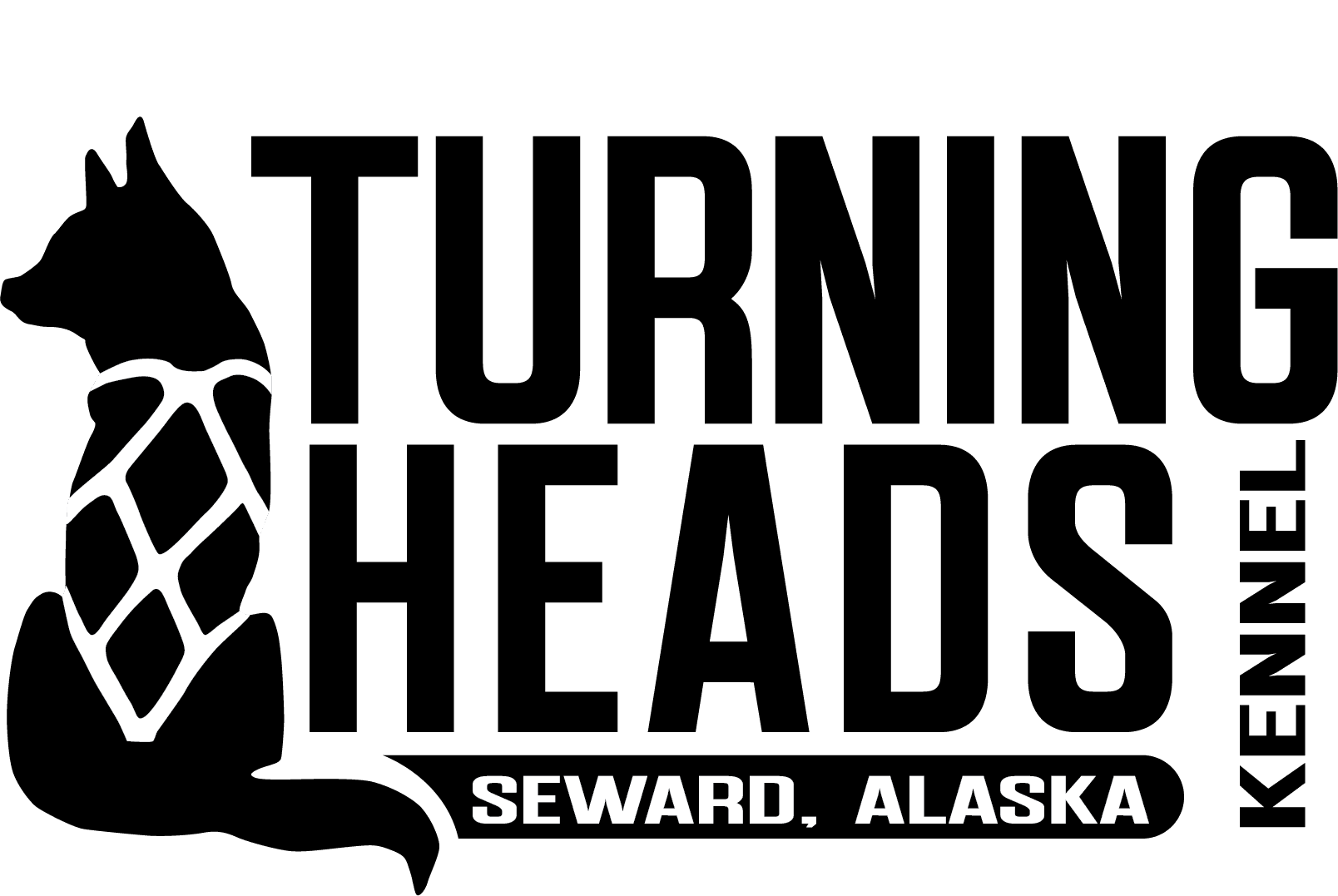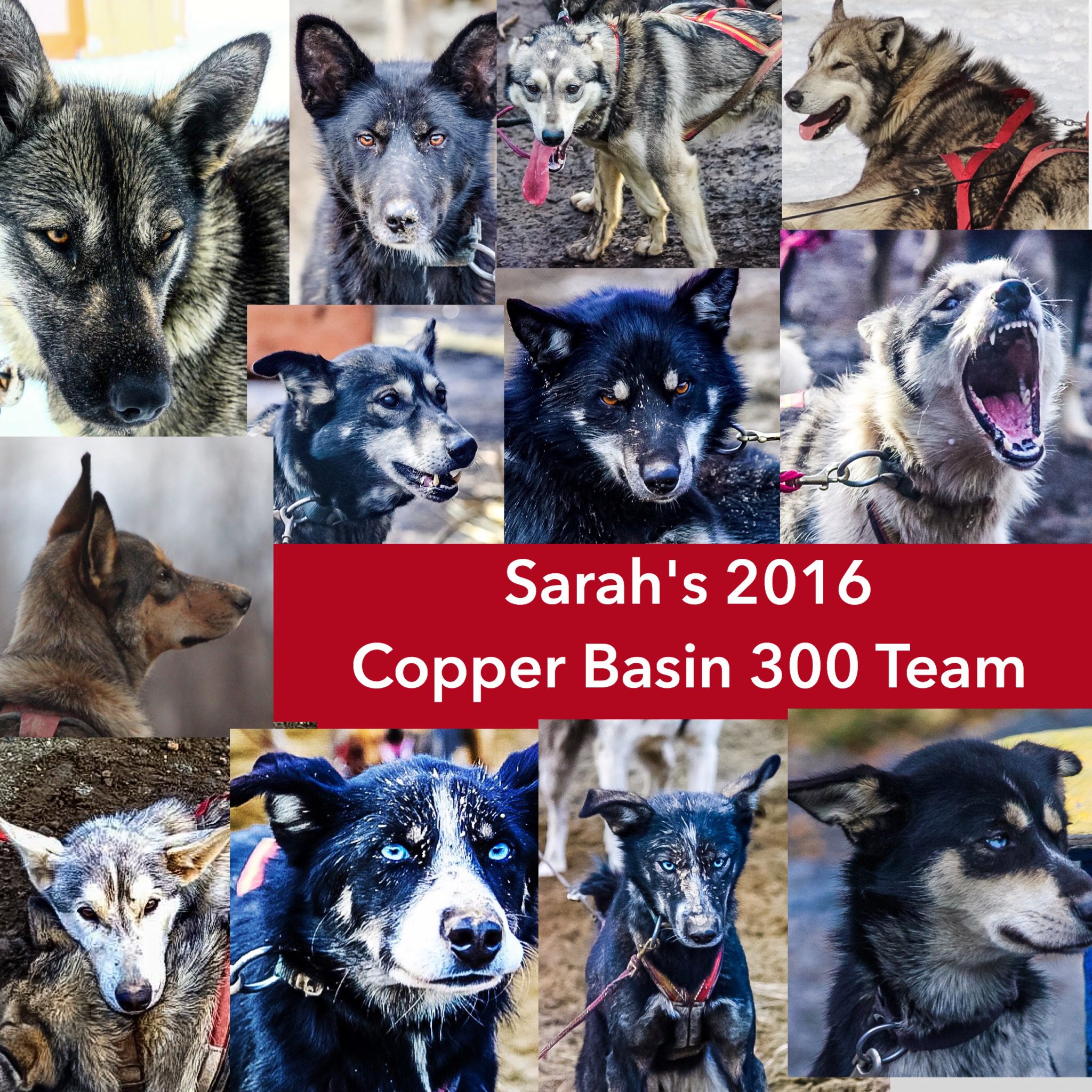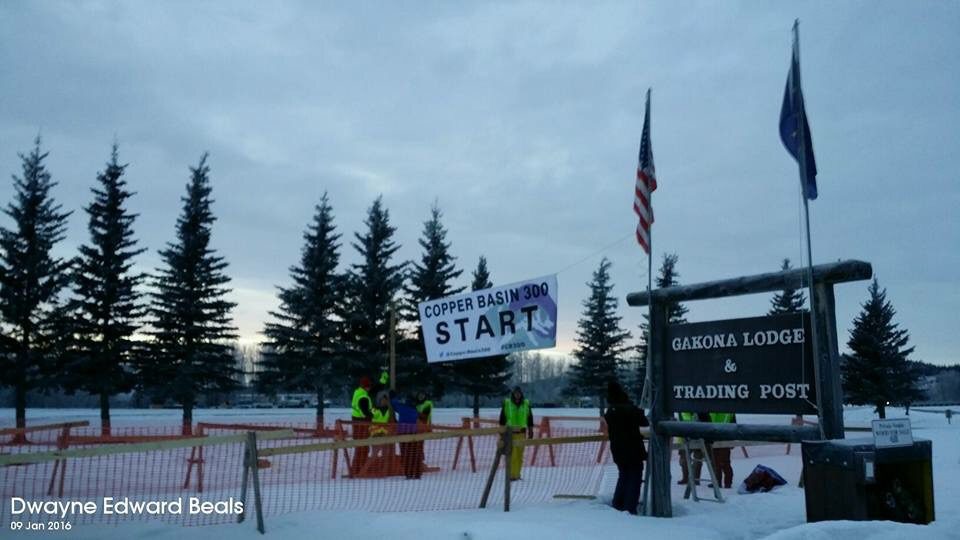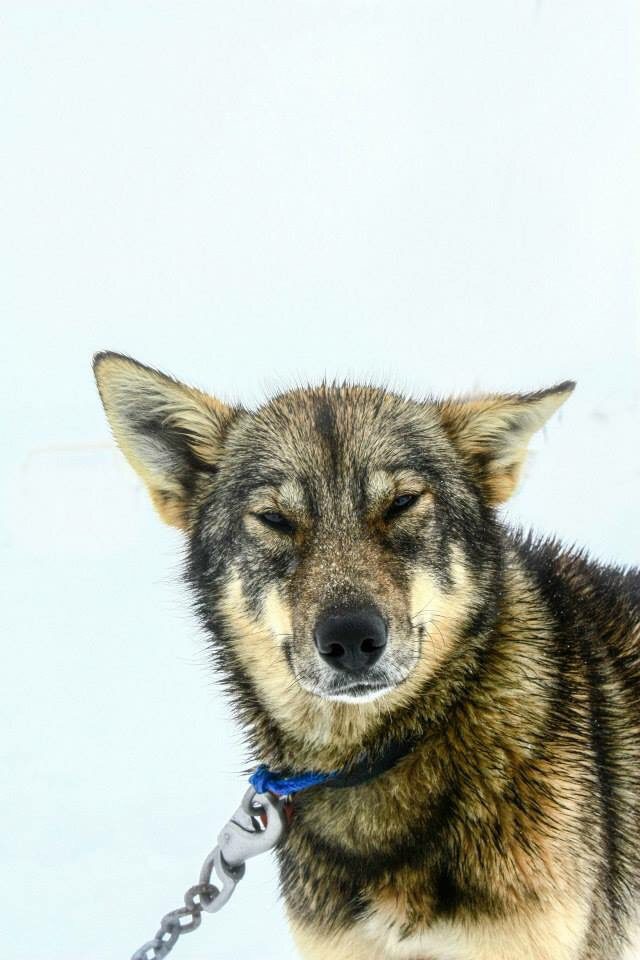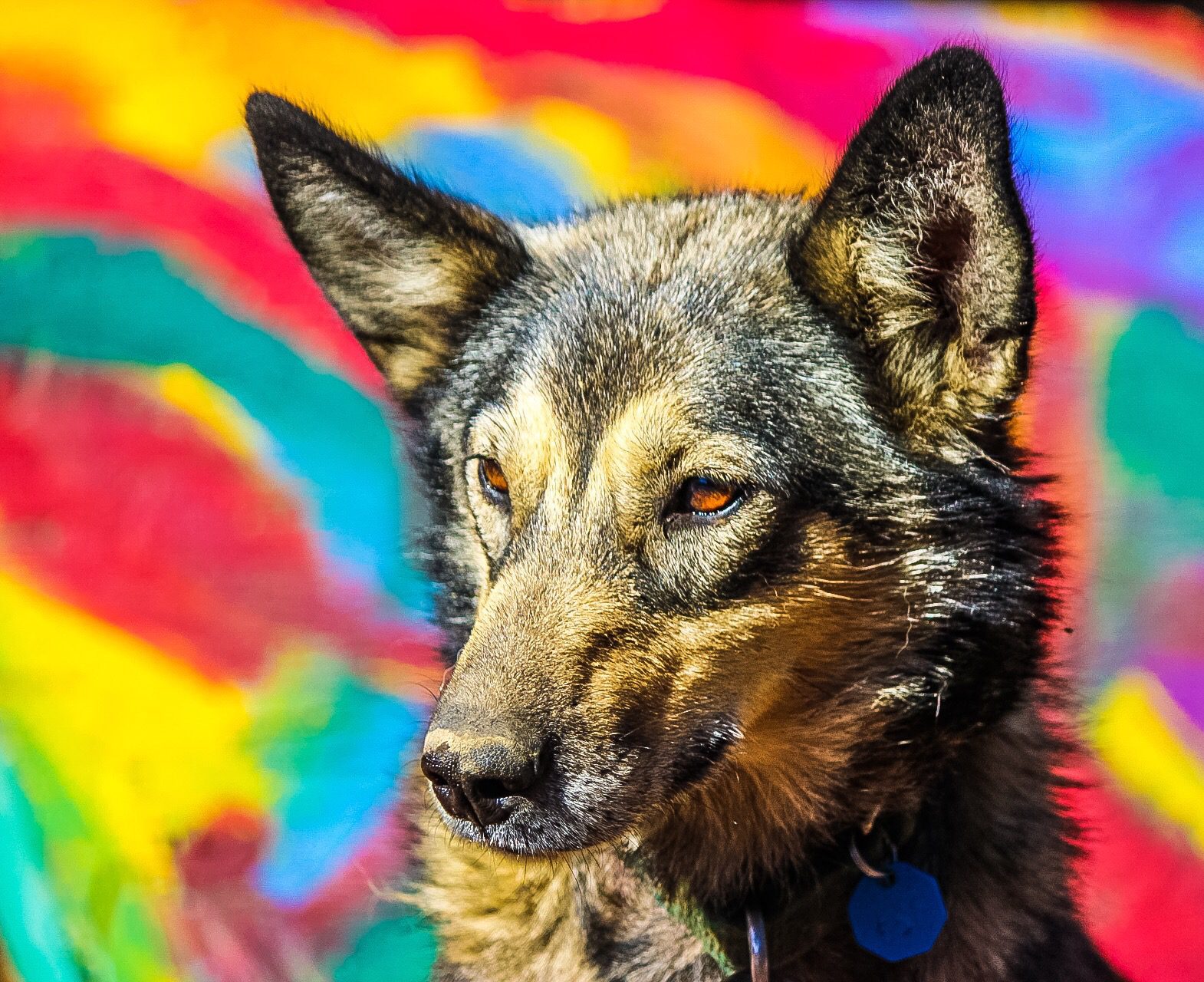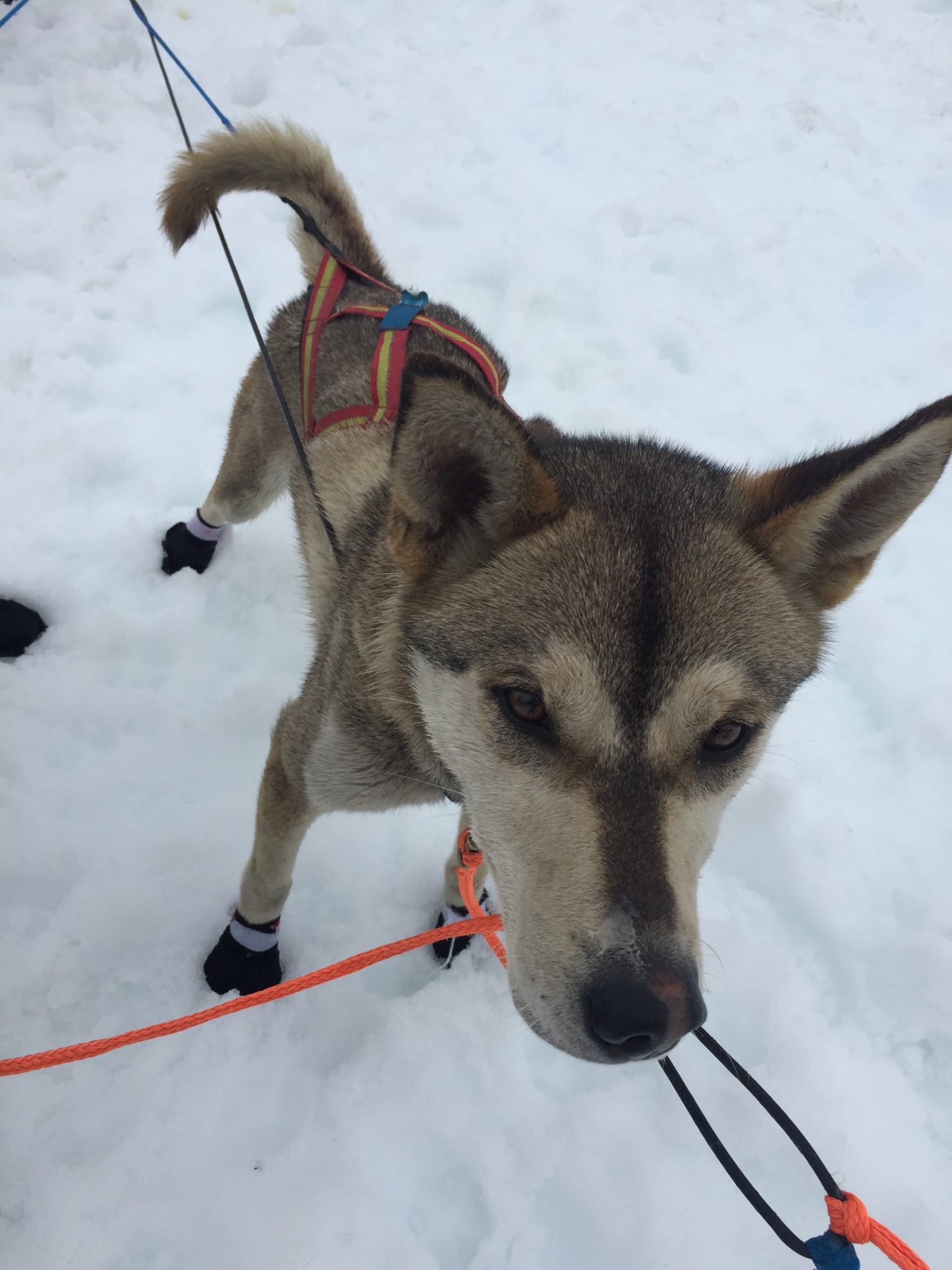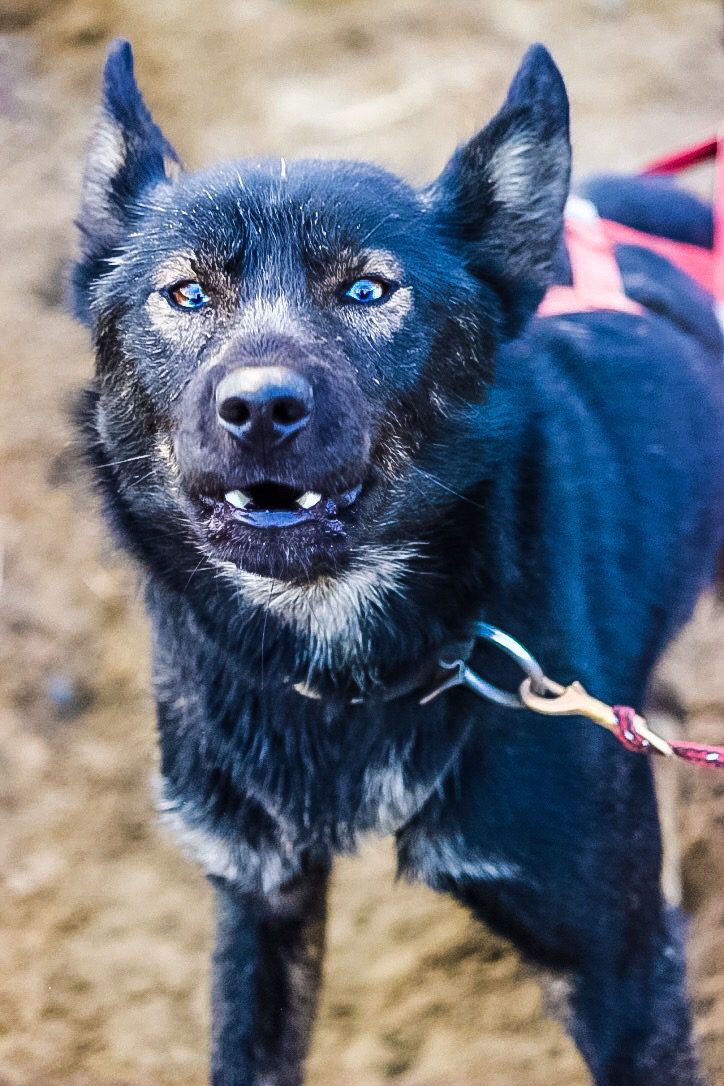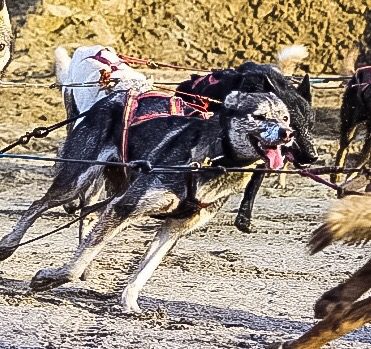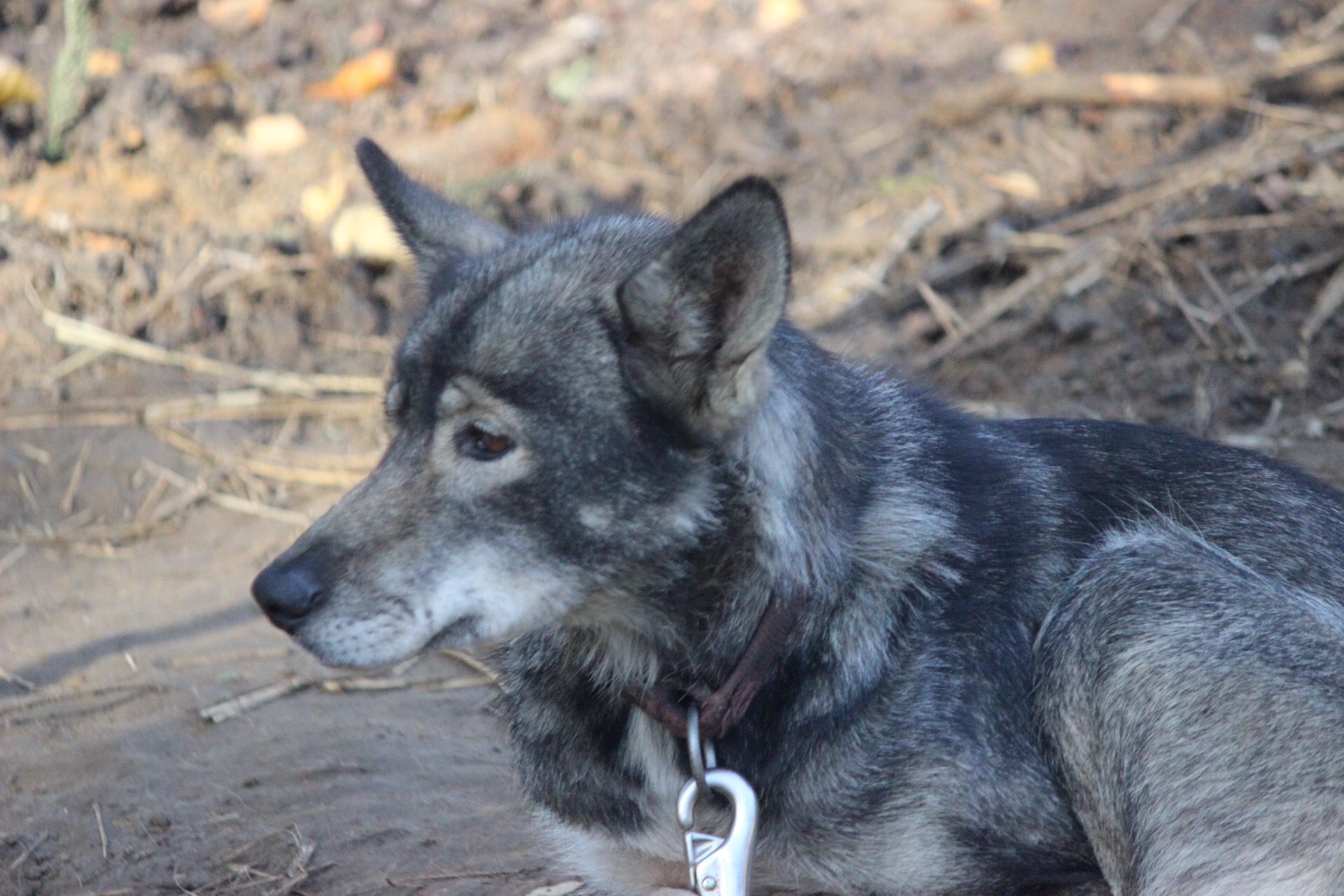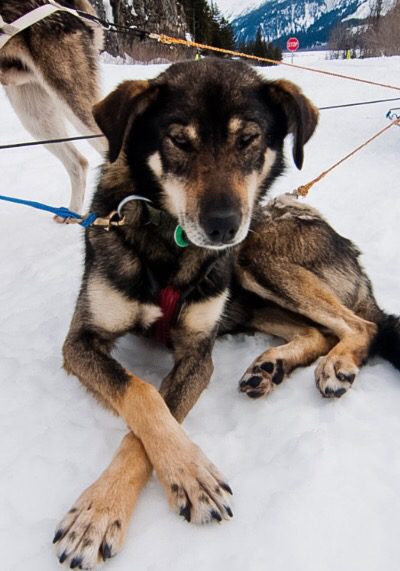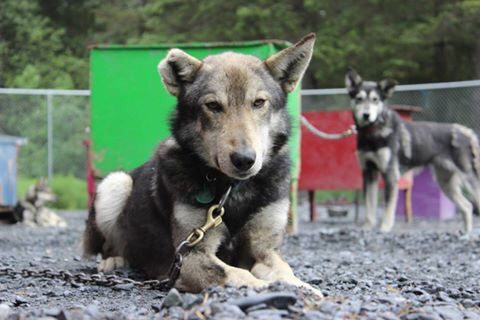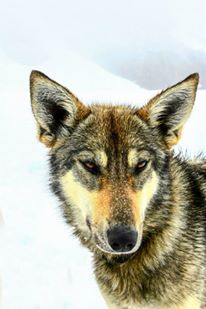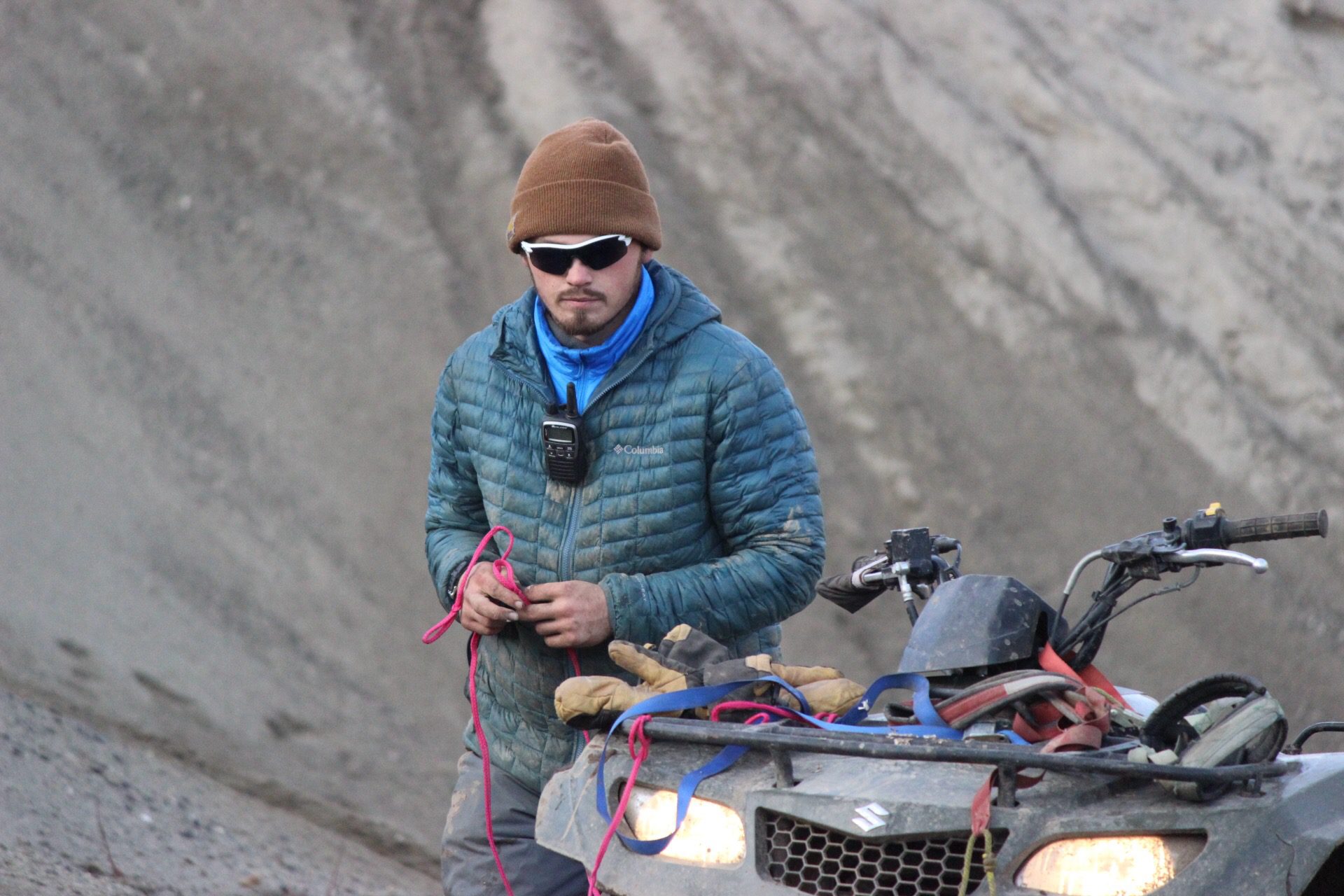This is a multi part series on my copper basin 300 race. Please check out the other posts:
As we left Meier’s lake for Sourdough, I realized I wouldn’t be indoors for another 120+ miles. I knew I needed to make every effort to keep my gear dry on this run as it would be virtually impossible to dry it out until I reached Mendeltna.
Taking off from Meier’s lake, I expected the trail to be flat. I don’t know why had this assumption. Most of the Copper basin is very very hilly. So when we reached an enormous hill about a mile and a half out of the checkpoint I quickly realized that I had made a big mistake putting him on my cold-weather gear.
I knew by now that wearing it up the hill would be fool hardy – especially given that if I got particularly sweaty I wouldn’t be able to dry anything out. So I stopped the team, they barked and lurched with excitement, and I hastily removed my parka and jacket.
Up we go! I told myself and the team. And up, up, up, we went. We were in rolling hills. I enjoyed mushing for some time in the daylight and enjoyed the warm colors of the sun on the snow.
One of the things mushing reminds me of is how vivid and beautiful the natural world is. I’ve always loved color. I’ve never been exceptionally talented at drawing but really enjoy working with color. Everything is so vivid and wonderful. Even the trees have so many colors to them and the subtleness of the different colors brings me such joy. I really love being outside with the dogs.
Whenever we crested hills I enjoyed the clearness of the day and how far I could see. Mostly I enjoyed the rythm my dogs created in their movements and thinking about who on the team I thought would make my Iditarod team.
To be honest, I think in terms of sled driving this was my favorite run. It was also my emotional low point. The terrain varied and was mostly hills with dips and twists and woods – my favorite type of mushing – but it was also a long run for us despite the short mileage.
I expected to be in be in the checkpoint sooner than I was. Anticipation is the worst part of racing in my eyes. When you anticipate something that isn’t there. Expecting something to be the checkpoint, only to find out it isn’t. Calling the dogs up, perking their attitude only disappoint yourself and them. This happened once when we neared the road and I thought the lights of a semi were the checkpoint lights. How bitterly it felt to here the woosh as it went by.
My dogs seemed stuck in an endless trudge that we couldn’t break. Our speed was slow but steady. We moved, albeit slow. At times, I thought I could probably walk faster.
I got frustrated but never let it show. I wanted to be moving faster than we were but couldn’t. There was no way to get the dogs moving. So I reminded myself of the positives and the dynamics of my team. They were young. Everyone but Madori was 2 or under and it was their first race. We were in sugary snow, stuff we hadn’t trained in. My expectations for them to be moving faster was unrealistic and unfair. They were happy, eating, and we were doing it. That was something.
I got passed by one team that left me in the dust. It was fine but I kept wondering why the teams around me were moving so much faster. Were my dogs sick? Was it the trail – but others so had this problem of not training on sugary snow – was it their age? Had I gone too fast on my first run? Were my dogs undertrained? Had I simply trained too slowly throughout the season?
I started questioning everything I had done, not out of a lack of confidence in myself or my team but in an analytical approach. What could I have done differently up to this point to get better results? Were better results possible?
I knew there had to be a way to have a faster team but wondered what exactly needed to be done. Was I overlooking something simple?
These questions stuck with me throughout the run and still do. I was also haunted by the fact that I knew that if Travis was driving this group of dogs that they would be moving faster. They would be performing better. And that of course opened up more questions: what did he do that I didn’t? What did he have in him or in his relationship with the dogs that always seemed to allowed a strong performance?
We continued down the trail. I stopped and noticed that Check, who had not been eating his snacks, was somewhat dehydrated. I considered bagging him. I also considered camping because I had no idea where the checkpoint was. My GPS had died and although I thought I was close I had thought that many times before and been wrong. I decided I’d go another 30 minutes and if we didn’t hit the checkpoint or see it, I’d stop for an hour. The dogs started barking and we went about another 200 yards before the checkpoint came into view. We were that close and I had had no idea! I was relieved I hadn’t simply stopped and camped – I would have been so frustrated!
When we got in to the checkpoint, Travis and Dwayne were cheering us in. There upbeat attitudes removed any doubt I had in myself or my dogs. Travis rode the sled with me because the checkers were far from the place we parked the team and said the dogs looked great. I told him I thought they were slow but he brushed my concern off. My confidence was restored.
When I parked the team , I started melting snow and immediately got my cooker going. Then came the straw and removing booties. As the cooker melted, I massaged dogs and organized my sled. I got chicken skins out and put them in my bucket to thaw and feed with kibble. They seemed to be the favorite food amongst my dogs. I fed the team and then started water for a feeding later on, warming up a burrito and some liquids so I could continue to stay hydrated. It was the worst meal I had the entire race at a checkpoint.
There was nowhere to sleep so after Justin and Wyatt left, they were now hours ahead of me, Travis raked the straw up and told me to sleep on it. I set my alarm, took my boots off and passed out in my sleeping bag.
I woke easily to the beeping. I slid my feet into my boots which were now icy. Taking them off, I realized, had been a big mistake. My feet would remain cold for hours until I ran into another musher who was kind enough to give me some toe warmers.
The team ate well, which raised my confidence but Check was sore though and still somewhat dehydrated. I made the decision to drop him, which was disappointing although necessary.
The checkpoint was spread out and before I left I had to go on a hike to find the bathroom and sign out. I signed out and got the team going, knowing I had another long run with a camp out before me.
I was looking forward to this run: it was the second to last of the race. Completing it would mean I was one step closer finishing.
I pulled hook and the dogs and I headed off into the night and lit up the trail.
If you enjoyed this post, please consider giving a donation to my Iditarod fundraiser.
